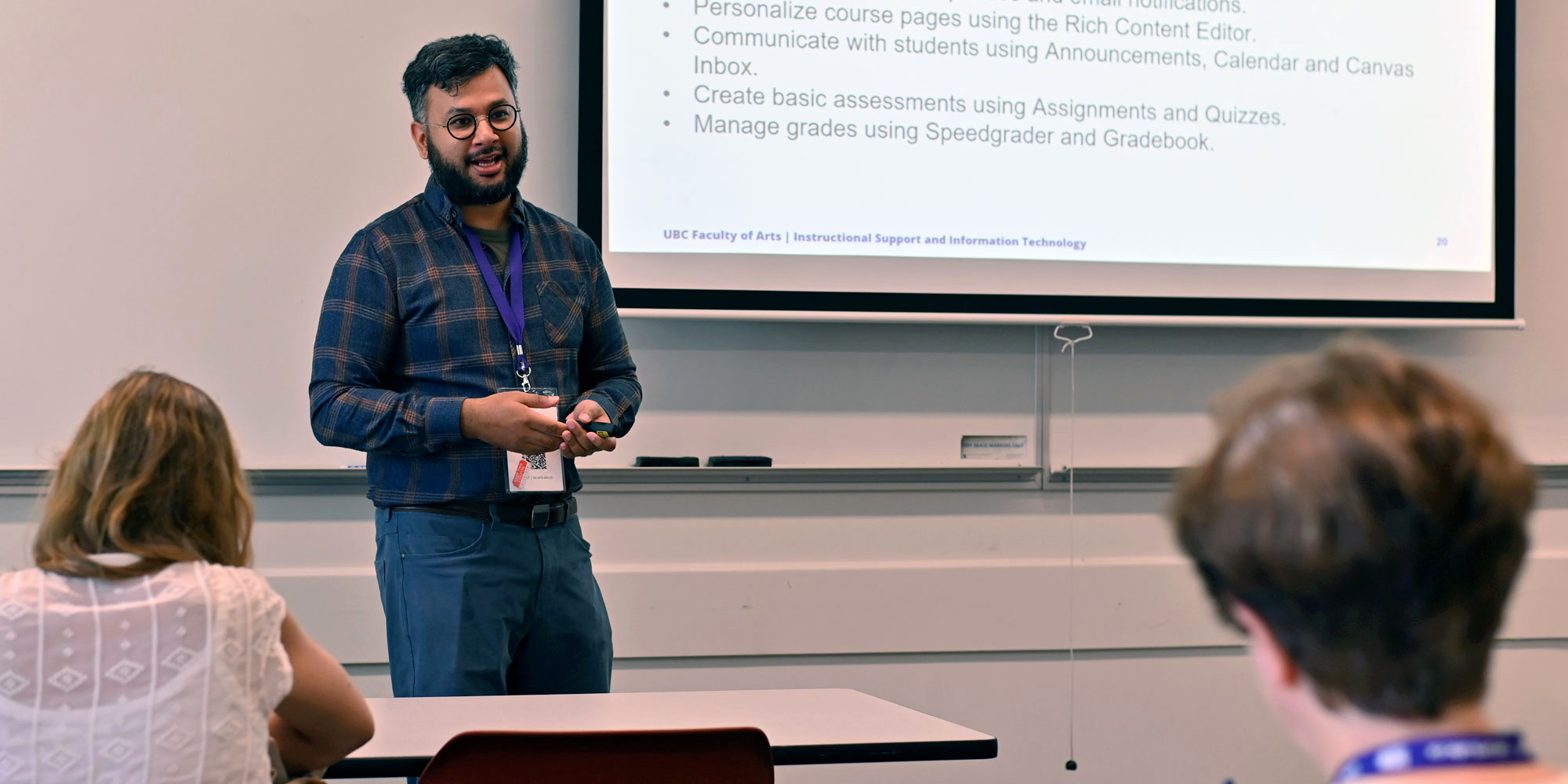As the new academic year approaches, Arts Instructional Support and Information Technology (ISIT) hosted our annual Arts ISIT Welcome Back Conference on August 20 to 21, 2025.
The event was a hub for Arts faculty members, staff, and instructional assistants to engage in teaching and technology topics, discover new tools, and connect with their colleagues ahead of the incoming academic year.
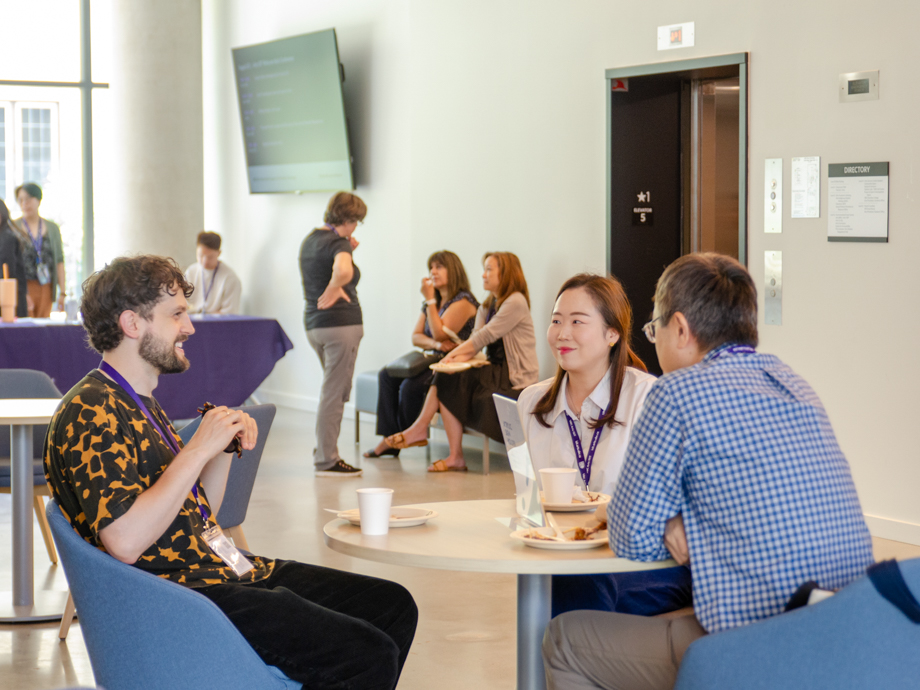
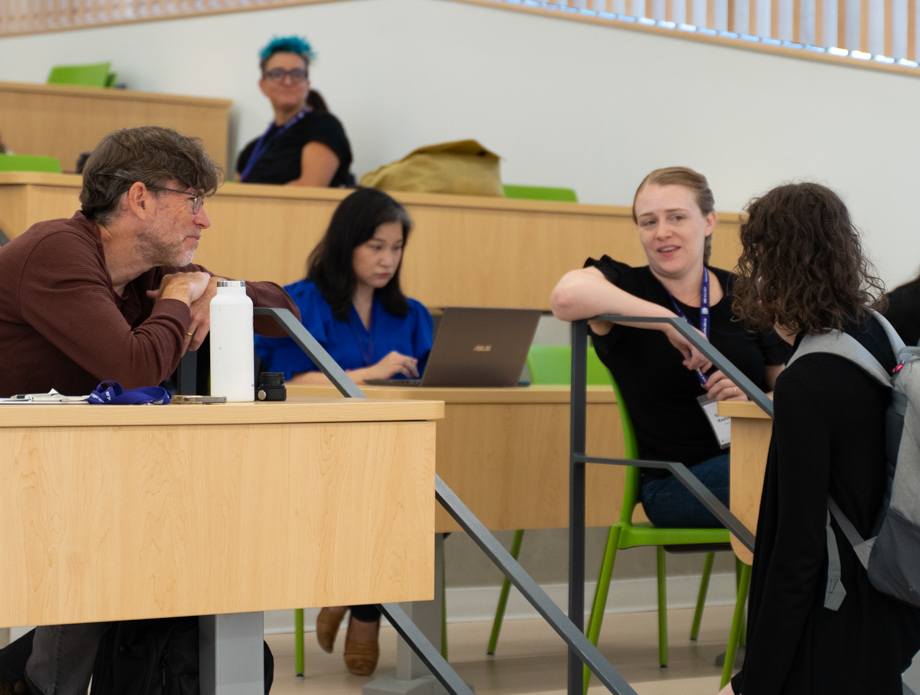
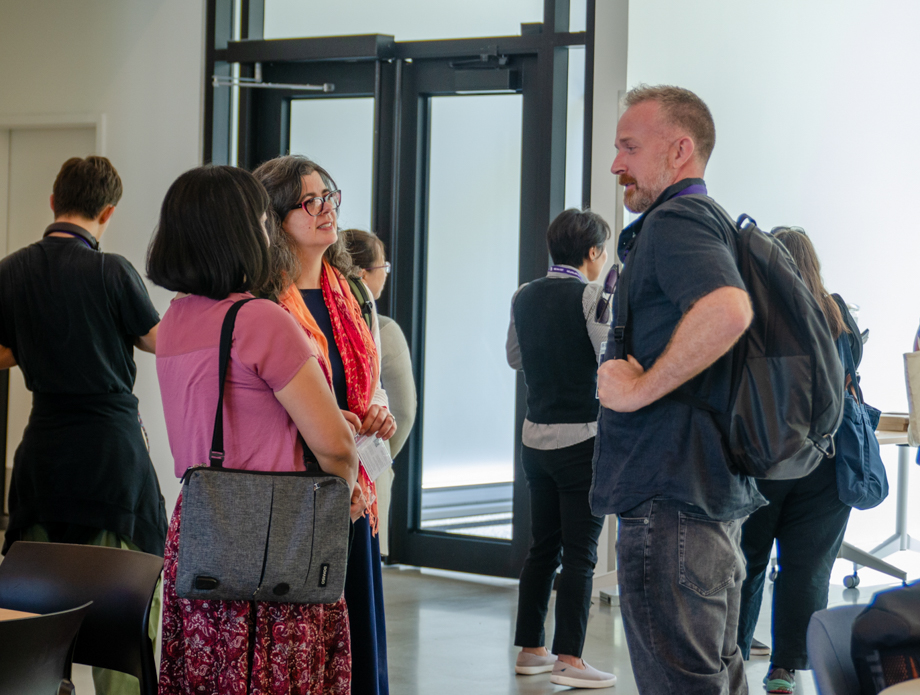
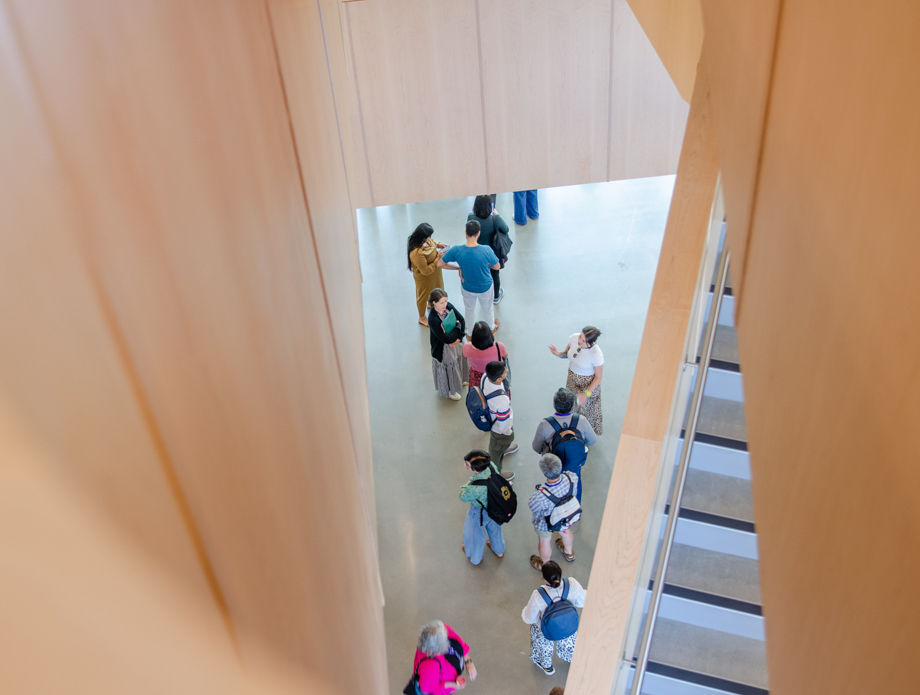
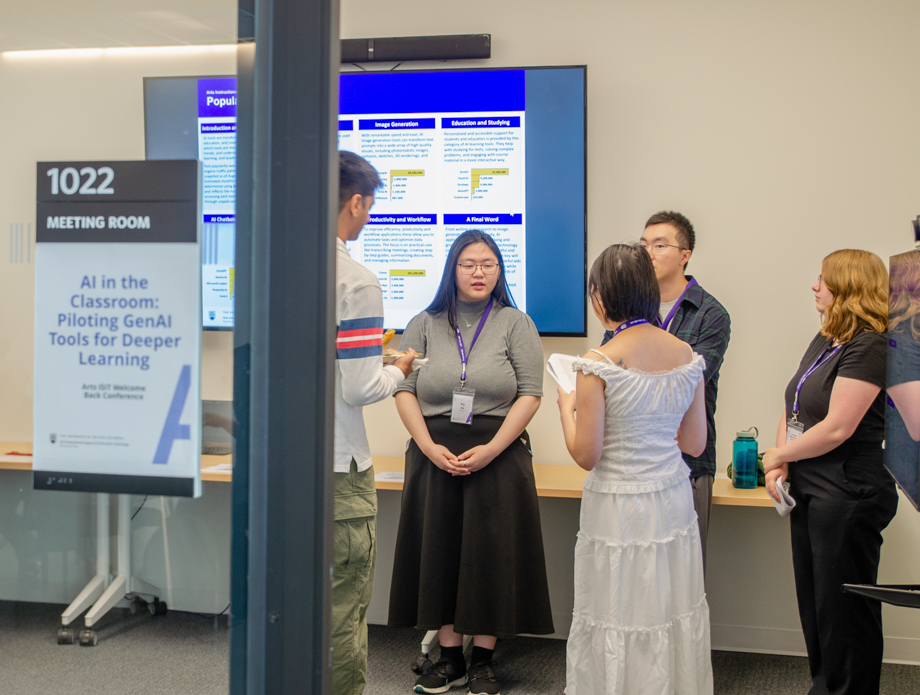
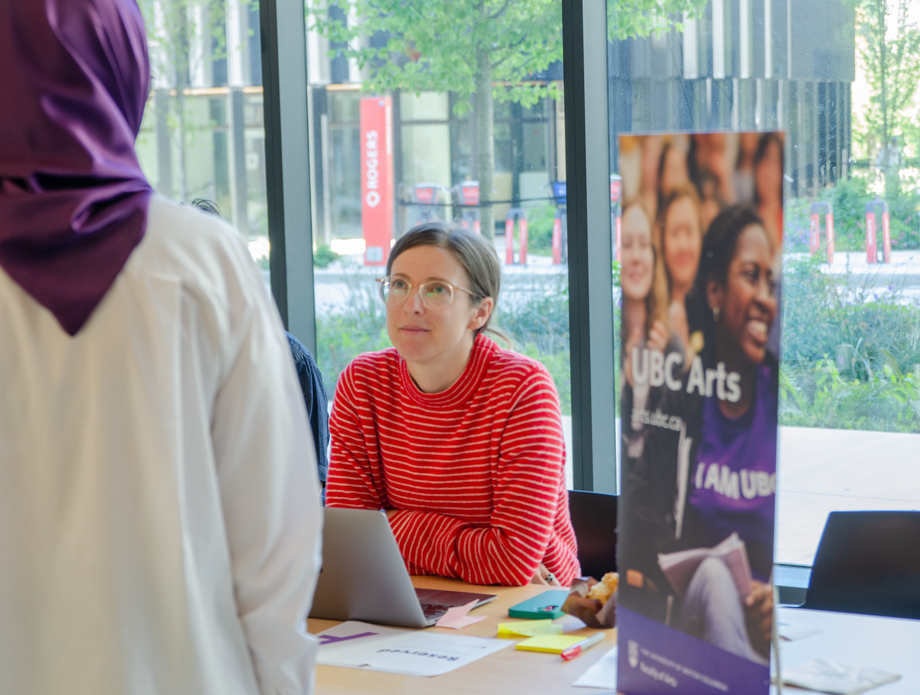
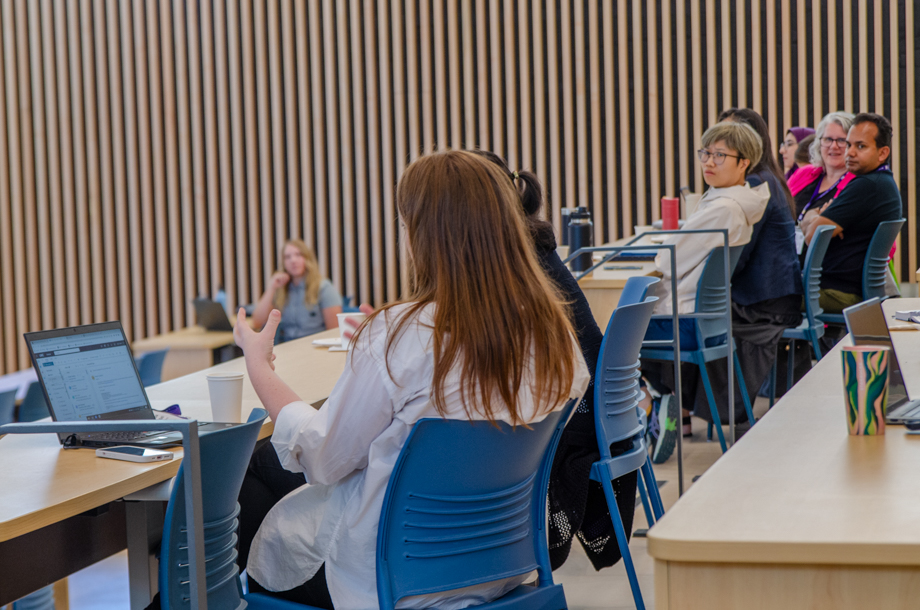
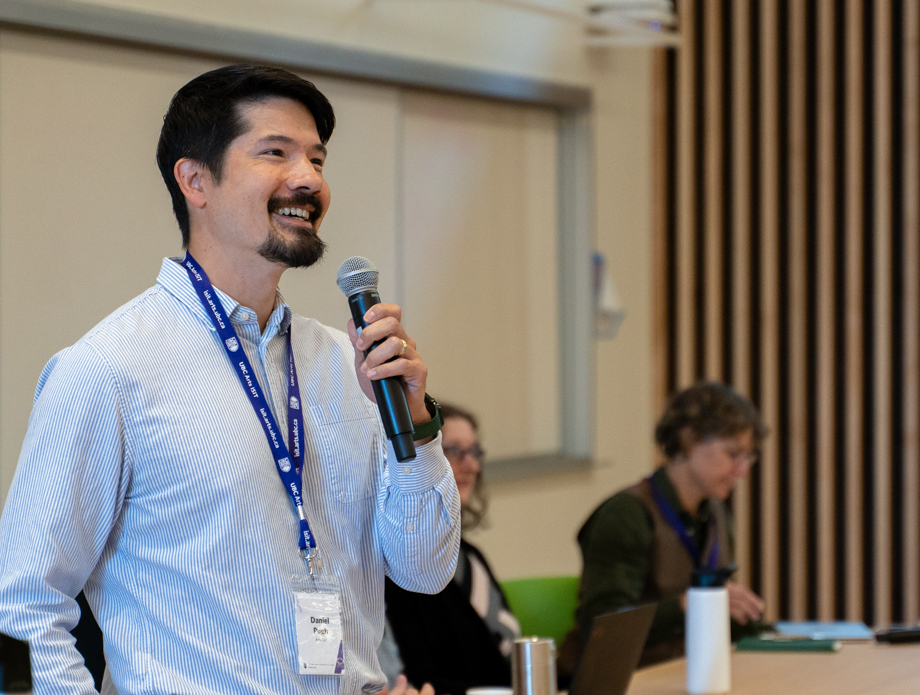
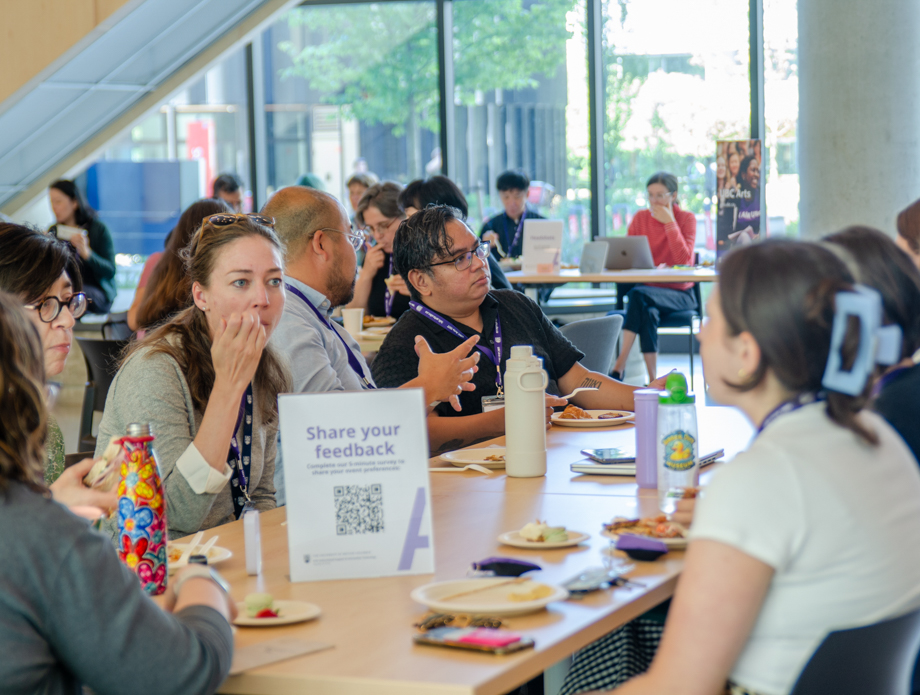

Generative AI in Teaching and Learning
System Failure: Reimagining the Future of AI
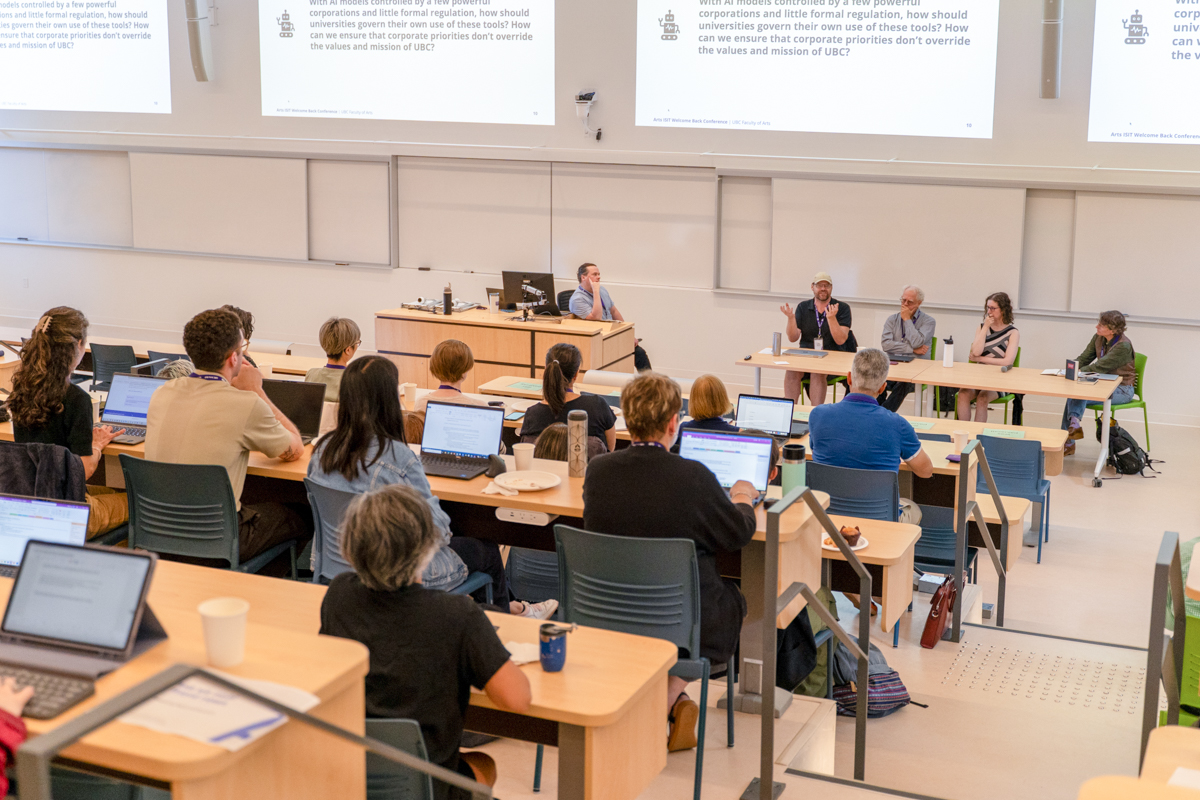

Attendees participate in a session moderated by Dr. Andrew Owen (left) and panelists Dr. Loch Brown, Dr. Scott Anderson, Dr. Heidi Tworek, and Dr. Lisa Nathan (left to right)
The opening panel delved into the ethical considerations of using generative AI (GenAI) in higher education. Arts scholars led a thought-provoking discussion on the governance of GenAI tools and raised questions about identifying factual information, preserving rigorous standards for scholarly evidence, and fostering inclusivity in academia.
While GenAI tools create new learning opportunities, the panel encouraged having ongoing discussions around GenAI’s risks and limitations, as well as continuing to promote critical thinking and problem-solving skills in the classroom.
GenAI Teaching and Learning Projects in Arts
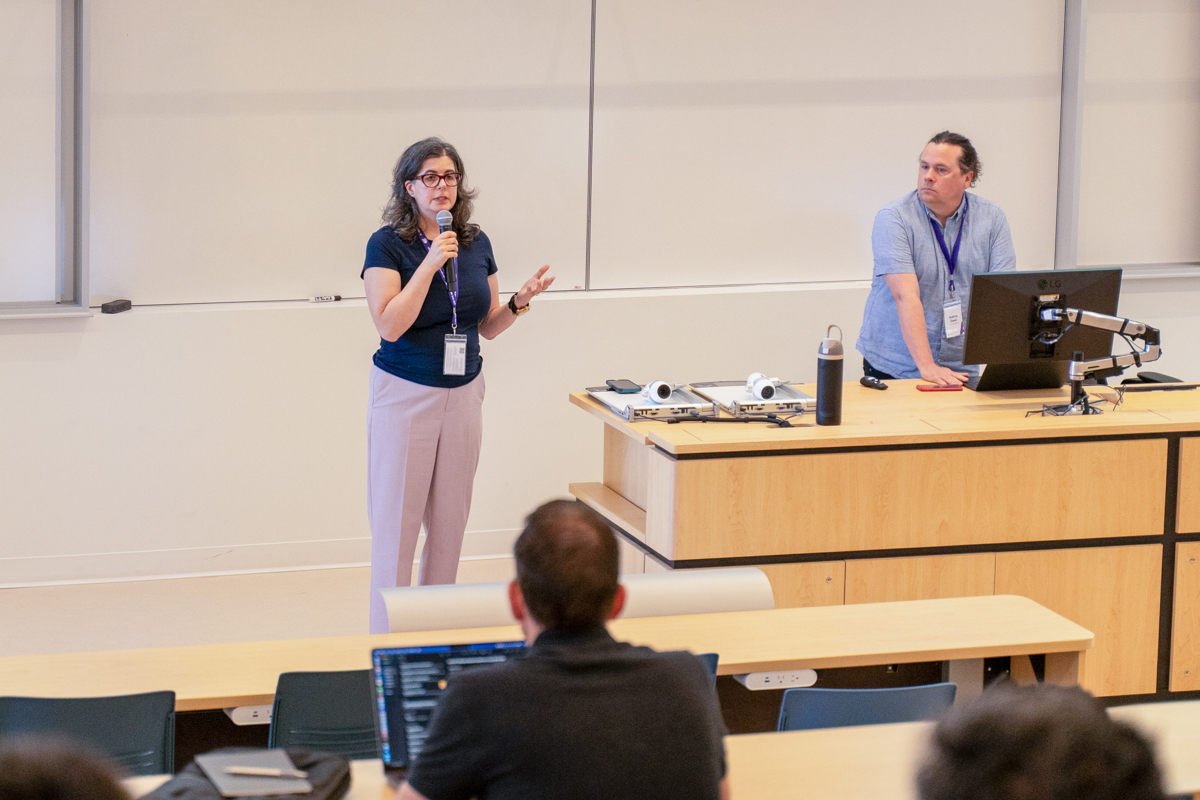

Dr. Laurie McNeill (left) and Dr. Andrew Owen (right) introducing the We're Only Human project
This session introduced several Teaching and Learning Enhancement Fund (TLEF) projects led by Arts faculty members, each exploring the role of generative AI in teaching and learning. Learn more about each project below.
The We’re Only Human project team shared their findings and recommendations for designing writing assessments during a time when AI use has become commonplace.
Strategies included providing students with clear policies for AI use in their courses (as well as the rationale behind them), openly discussing the risks and benefits of using AI, and updating writing assessments to include collaborative activities, presentations, and real-world connections.
The project team introduced OCELIA, a web-based AI chatbot designed to help students engage with dense academic materials such as course readings. Rather than providing direct answers or summaries, OCELIA encourages students to engage with materials more critically using guided, thought-provoking dialogue.
Using Virtual Reality (VR), the Procedural Poetry Funhouse encourages students to reimagine poetry as a physical space to further their understanding of poetry and the process behind it. Using elements of play, the tool invites students to engage with poetry in an interactive, low-stress manner.
Through educational modules, this project aims to help Arts students and faculty members use AI tools to better understand their disciplines.
The goal is to provide students with a grounded understanding of these tools and their applications (no more "black boxes"), and why a critical understanding of these tools is necessary to use them well.
Pedagogical Approaches and Strategies
Place and Power: Lessons and Reflections a Year into the New BA Requirement
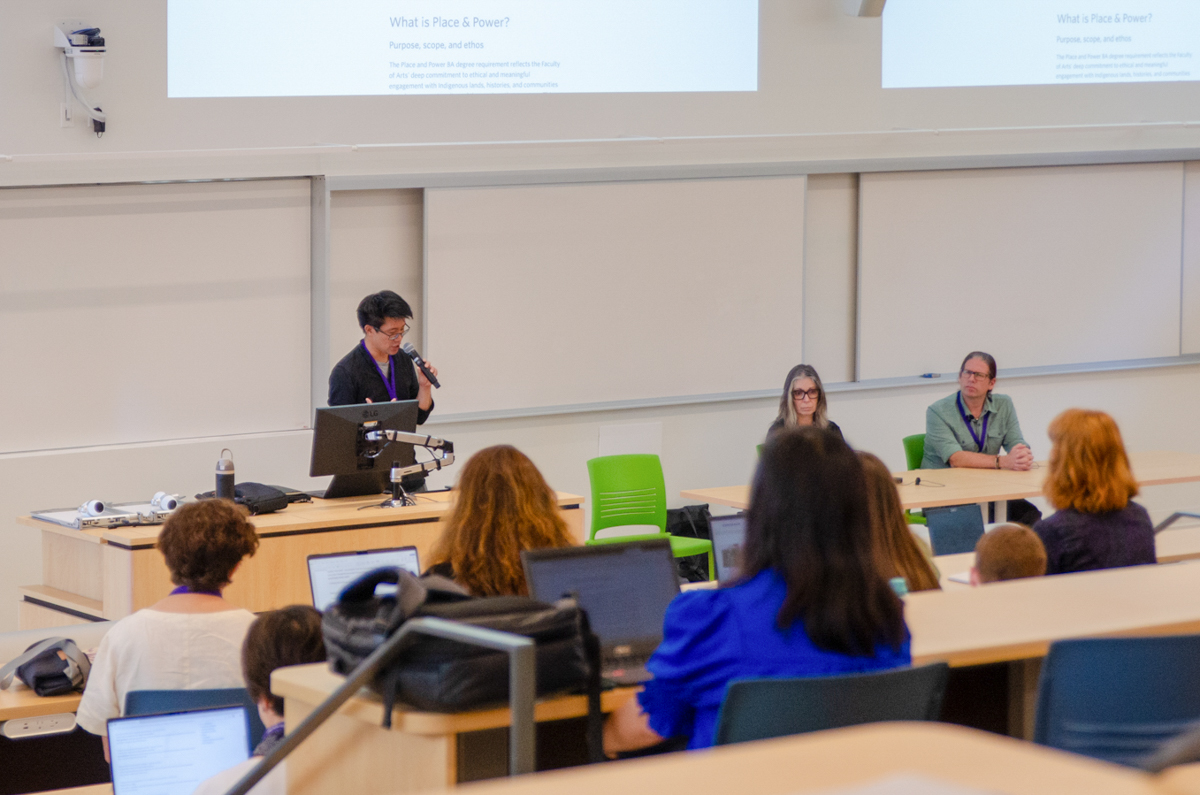

Moderator Dr. Chris Lee (left) leading the session with panelists Dr. Miranda Burgess and Dr. Tim Frandy (left to right)
Arts instructors shared their experiences with designing and teaching Place and Power courses.
Among various lessons, the panel emphasized the importance of creating an inclusive learning environment. They also shared their methods for designing and evaluating assessments such as involving community input, grading based on the quality of research, and being understanding of the challenges that may arise during the learning process.
Faculty members who are interested in proposing or teaching a Place and Power course are encouraged to review resources created by the Arts Place & Power Coordinating Committee.
Killam Teaching Prize Recipients Masterclasses
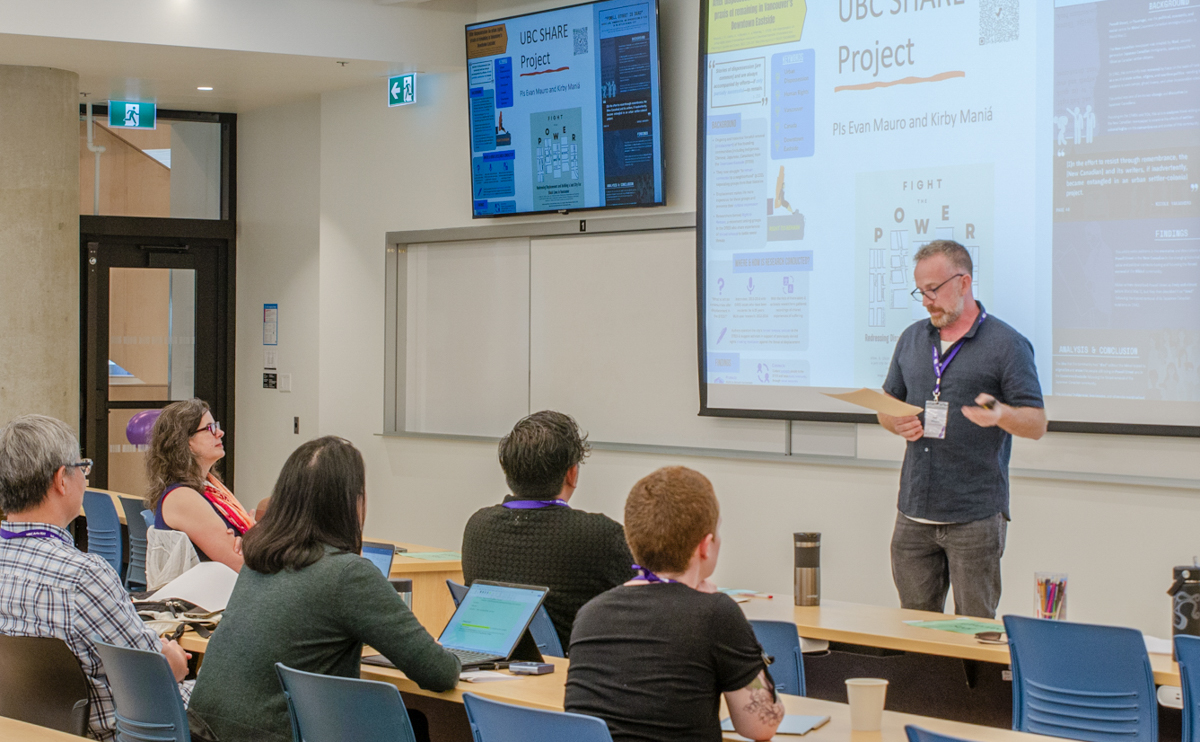

Dr. Evan Mauro presenting at the Killam Teaching Prize Masterclass session
Delivered through five masterclasses, Arts recipients of the 2024-25 Killam Teaching Prize led thought-provoking discussions on a range of pedagogical topics.
Dr. Kathleen Currie Hall discussed the importance of names, using the Musqueam name for UBC’s “East Mall” as an example. Drawing from linguistic perspectives, she explores why some people may feel hesitant to pronounce unfamiliar names, and how using the correct names for people and places can promote a sense of belonging.
As computers become better at providing answers, Dr. Olena Morozova expressed the value of teaching students how to ask better questions. She also outlined the benefits of teaching how-to (skills), in addition to what (content), to encourage deeper learning.
Dr. Simon Lolliot demonstrated four different exercises he uses to engage students in large introductory Psychology courses. The exercises aimed to get students comfortable and interested in the course, outlined the benefits of using paper vs. computers, explored concepts on memory and attribution, and discussed the universality of emotions.
Dr. John Paul (JP) Catungal shares how a guided walking tour to different Indigenous sites on campus—and the ongoing work that should follow—can help reiterate Musqueam sovereignty, engage the campus landscape as a resource, activate kinetic learning, and prompt reflection.
Beyond Content and Toward Understanding How We Teach our Disciplines: An Introduction to Signature Pedagogies
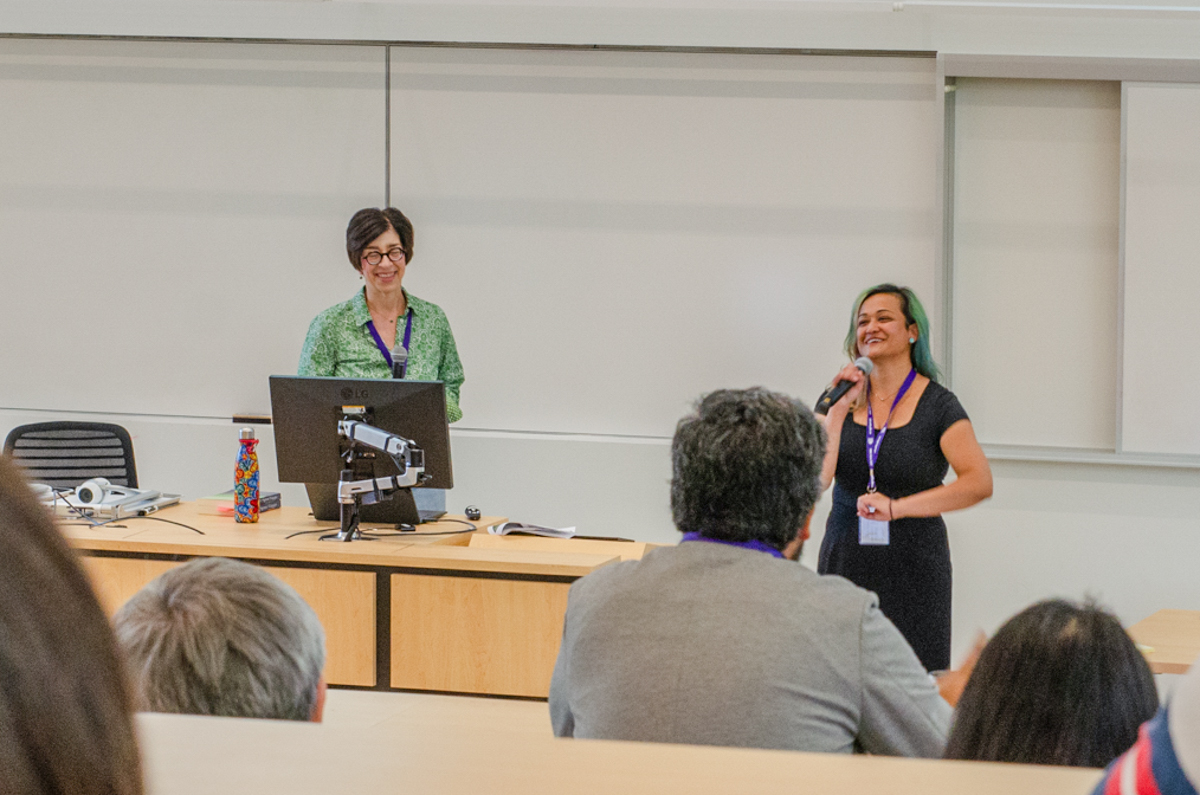

Julie Walchli (left) and Nausheen Shafiq (right) presenting their workshop
This session introduced the concept of signature pedagogies, which are styles of teaching that are signature to a specific discipline. Familiar examples mentioned include case analysis methods in law, clinical rounds in medicine, and studio pedagogy in art, design, and architecture.
Through concepts and hands-on activities, attendees learned how signature pedagogies can help students see beyond the course content and equip them with practical skills for their future professions.
Digital Scholarship in Arts
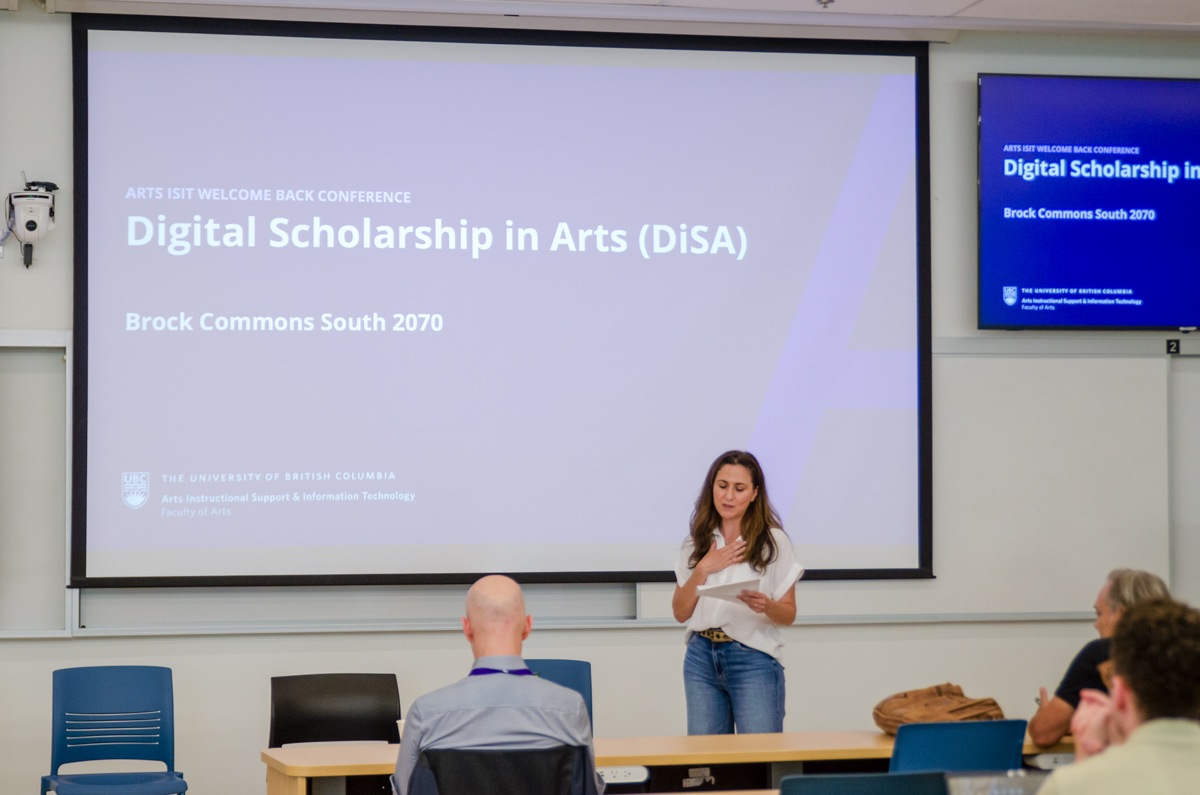

Christine D'Onofrio, Director of Digital Scholarship in Arts (DiSA), introducing the session
Presented by Arts faculty members, the Digital Scholarship in Arts (DiSA) panel discussed how digital and computation methodologies are shaping academic research. Each panelist shared a unique perspective, drawing on their projects in archaeology, sociology, fine arts, and classical studies.
Despite the many ways technology can advance research, the panel emphasized how the role of the human researcher remains crucial, particularly when setting the research direction and validating findings. They also expressed the importance of human collaboration and transparency in research methods amid technological advancements.
Tools and Tips for Teaching and Administration
Assessment Strategies: Online Exams and Student Gradebook Analysis
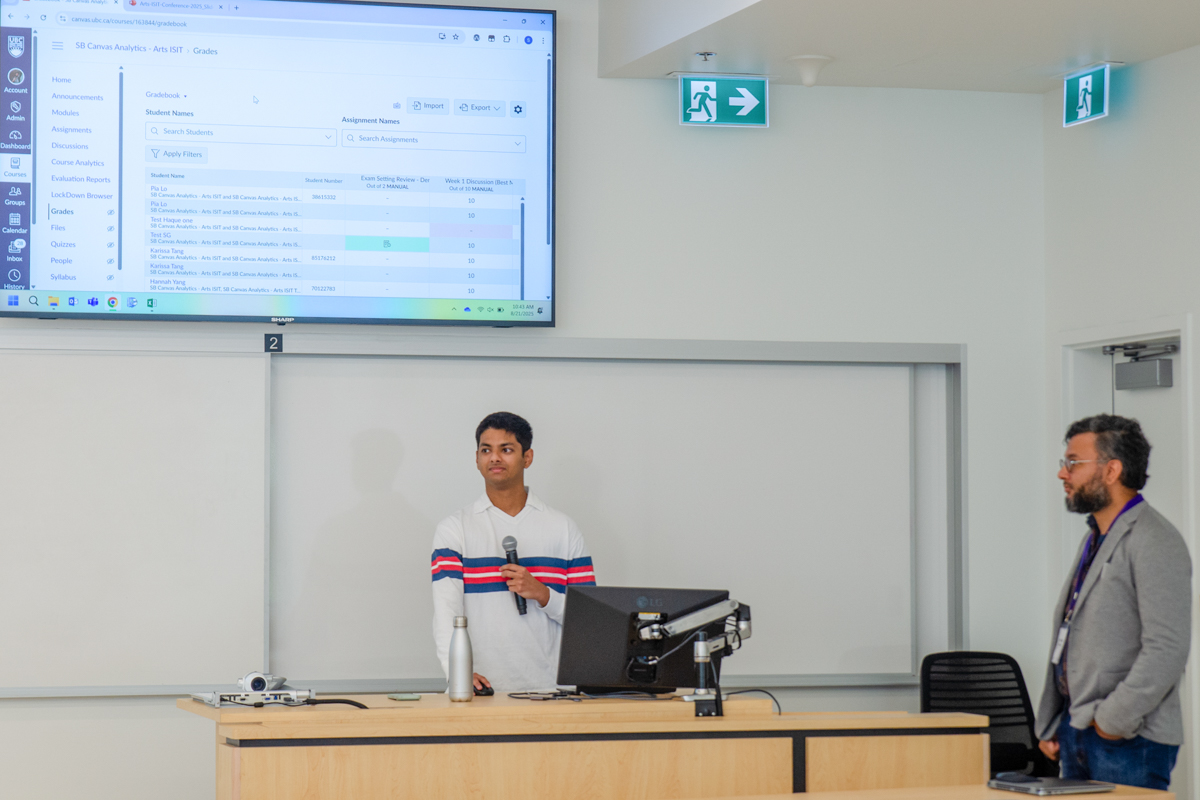

Saul George (left) and Asif Sami Haque (right) showcasing Canvas Analytics features
Presented by the Arts ISIT Learning Centre, this two-part workshop covered strategies for delivering and evaluating assessments.
Attendees learned how to use Canvas for student grade analysis through a live demo of the enhanced Gradebook interface, various features for streamlining grading, and how to use the Course Analytics function to identify student trends and inform teaching practices.
The workshop also covered Arts ISIT’s new exam services model and demonstrated a review of online exam settings to prepare instructors for running online exams.
No Thanks! We’re Too Busy: Using Technology for Productivity


Daniel Pugh (left) presenting the workshop with co-facilitators Violet Addams, Gary Chan, and Cara Chuang (left to right)
This workshop covered tools and techniques to help staff and faculty members organize their work, complete individual and group tasks, and improve productivity.
Divided into four presentations, attendees learned tips for managing their emails on Outlook, scheduling appointments with colleagues through Microsoft Bookings and Outlook Polls, streamlining files through a knowledge base and file repository, and effectively managing projects and tasks using available tools.
Lunch Showcase and Social
In between panels and workshops, faculty and staff also mingled with their colleagues over lunch, participated in an activity for a chance to win prizes, and had their headshots taken with Arts ISIT and Arts Communications.
Attendees also dropped by the lunch showcase to learn about different topics.
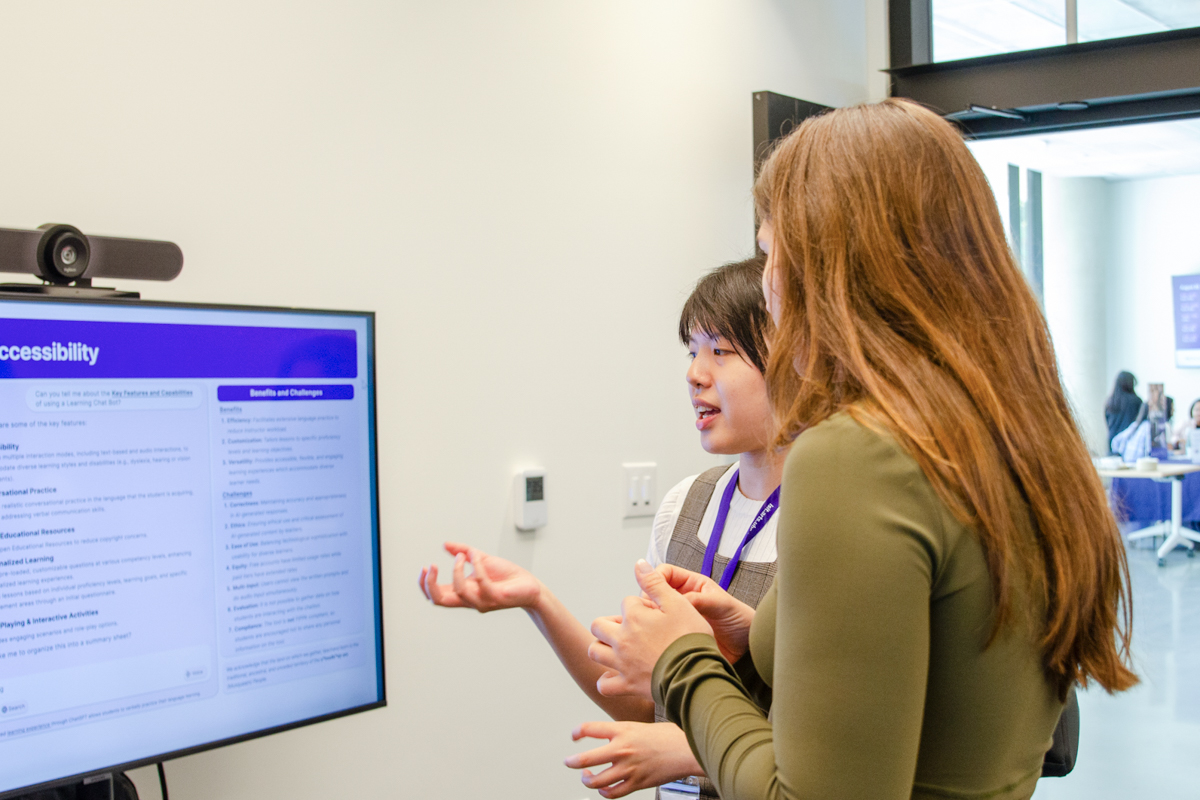

Karissa Tang (left) discussing AI classroom tools with a conference attendee
AI Tools: Piloting GenAI Tools for Deeper Learning | Presented by the Arts ISIT Learning Centre, this digital poster showcase outlined different GenAI tools including their use cases, benefits, and potential challenges.
Encouraging Student Participation | Attendees chatted with Dr. Luisa Canuto about teaching approaches that address participation challenges, as well as opportunities for collaboration with other instructors.
Bring Your Questions: Personalized Data Analytics and Reporting Support | Hosted by Arts ISIT Learning Analytics, this drop-in session allowed to attendees to ask questions about Arts Tableau and get to know Arts ISIT’s data analytics and reporting services.
